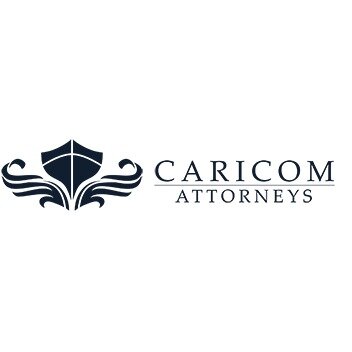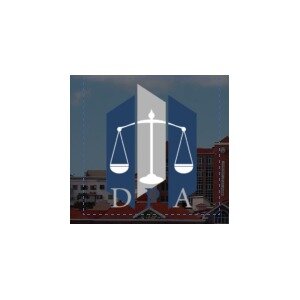Best Renewable & Alternative Energy Lawyers in Grenada
Share your needs with us, get contacted by law firms.
Free. Takes 2 min.
Or refine your search by selecting a city:
List of the best lawyers in Grenada
About Renewable & Alternative Energy Law in Grenada
Renewable and alternative energy play a crucial role in Grenada's strategy for sustainable development and energy independence. The government has recognized the need to transition away from fossil fuels and encourage the adoption of cleaner, more sustainable energy sources. As such, Grenada is developing a regulatory framework to govern the use, production, and distribution of renewable energy. These laws are aimed at fostering investment, protecting consumers, ensuring environmental sustainability, and meeting international climate commitments. Common areas under renewable and alternative energy law in Grenada include solar, wind, geothermal, and bioenergy projects. The landscape continues to evolve as new technologies and market participants emerge.
Why You May Need a Lawyer
The legal landscape for renewable and alternative energy in Grenada can be complex, especially for individuals and businesses seeking to invest in or develop energy projects. Here are some situations where a lawyer can provide valuable assistance:
- Understanding and complying with regulatory requirements for installing solar panels or other renewable energy systems
- Securing permits and licenses needed to start renewable energy projects
- Negotiating contracts with service providers, contractors, or government agencies
- Ensuring your renewable energy system complies with grid interconnection standards
- Handling land use or environmental impact assessments for larger projects
- Managing disputes arising with utility companies or project partners
- Protecting intellectual property related to new energy technologies
Local Laws Overview
Renewable and alternative energy in Grenada is regulated within a broader framework of laws, policies, and institutional arrangements. The Electricity Supply Act and regulations from the Public Utilities Regulatory Commission (PURC) form the backbone of energy regulation in Grenada. Here are some key aspects of local law applicable to renewable energy:
- Licensing requirements for electricity generation, transmission, and distribution
- Approval processes for grid connection of renewable energy systems, including technical and safety standards
- Net metering provisions, allowing homeowners or businesses that generate their own electricity to feed excess back to the grid
- Incentives and tax breaks for renewable energy investments
- Land use and environmental regulations for renewable energy project development
- Consumer protection measures, ensuring transparency in contracts and pricing
Grenada is also a participant in international agreements and has set national renewable energy targets as part of its action on climate change. Ongoing policy developments shape the rights and responsibilities of developers, investors, homeowners, and the general public.
Frequently Asked Questions
What types of renewable energy are most common in Grenada?
Solar energy is the most widely used form, followed by wind and geothermal potential development. The island's abundant sunshine makes solar photovoltaic systems especially popular for homes and businesses.
Can I install solar panels on my house or business?
Yes, individuals and businesses are permitted to install solar panels. However, you may need approval from the relevant local authorities and must comply with safety and grid connection standards.
Are there incentives for investing in renewable energy?
Grenada offers various incentives such as import duty exemptions, VAT reductions, and potential grants to encourage the adoption of renewable energy technologies.
What permits or approvals are required for a renewable energy project?
Depending on the size and type of project, you may need a generation license, environmental clearance, and grid interconnection approval from regulatory authorities.
What is net metering, and does Grenada allow it?
Net metering allows individuals generating renewable energy to feed excess electricity back into the grid and receive a credit or payment. Net metering is permitted by local regulations under certain conditions.
Who is responsible for regulating renewable energy in Grenada?
The Public Utilities Regulatory Commission (PURC) is the main body overseeing electricity and renewable energy, supported by specific ministries and environmental agencies.
Do I need a lawyer to start a renewable energy project?
Legal guidance is highly recommended, especially for larger projects or if you are unfamiliar with the regulatory environment. A lawyer helps ensure compliance and can save time and costs in the long run.
What are the environmental regulations for renewable energy projects?
Projects often require environmental impact assessments, especially if they are large scale. The Ministry of Climate Resilience, The Environment, and Renewable Energy is involved in review and approval.
Can foreign investors participate in Grenada’s renewable energy sector?
Yes, foreign investment is welcome, but investors must comply with national investment regulations and licensing requirements.
How can disputes over energy contracts or installations be resolved?
Disputes may be handled through negotiation, mediation, or formal legal proceedings. The involvement of a lawyer is helpful for both negotiation and court processes.
Additional Resources
For more information or assistance, you may consider reaching out to the following:
- Public Utilities Regulatory Commission (PURC) - The primary regulatory authority for electricity and renewable energy
- Ministry of Climate Resilience, The Environment, and Renewable Energy - Oversees environmental standards and renewable energy policies
- Grenada Investment Development Corporation (GIDC) - Provides advice and support for investors, including in renewable energy
- Grenada Sustainable Energy Office - Offers policy information and updates on renewable energy initiatives
- Local legal associations and law firms with experience in energy and environmental law
Next Steps
If you are considering starting a renewable or alternative energy project in Grenada, or if you need advice on compliance and contracts, here are some steps to follow:
- Gather as much information as possible about your intended project or need
- Identify the permits, licenses, or approvals required for your project
- Consult with a qualified lawyer who has experience in Grenadian energy law
- Engage with the relevant governmental agencies or authorities early in your planning
- Review all contracts carefully before signing and seek legal advice as needed
- Stay informed about ongoing policy changes and new incentives
Securing professional legal assistance will help ensure your rights are protected, and that your renewable energy project is successful and compliant with all local laws.
Lawzana helps you find the best lawyers and law firms in Grenada through a curated and pre-screened list of qualified legal professionals. Our platform offers rankings and detailed profiles of attorneys and law firms, allowing you to compare based on practice areas, including Renewable & Alternative Energy, experience, and client feedback.
Each profile includes a description of the firm's areas of practice, client reviews, team members and partners, year of establishment, spoken languages, office locations, contact information, social media presence, and any published articles or resources. Most firms on our platform speak English and are experienced in both local and international legal matters.
Get a quote from top-rated law firms in Grenada — quickly, securely, and without unnecessary hassle.
Disclaimer:
The information provided on this page is for general informational purposes only and does not constitute legal advice. While we strive to ensure the accuracy and relevance of the content, legal information may change over time, and interpretations of the law can vary. You should always consult with a qualified legal professional for advice specific to your situation.
We disclaim all liability for actions taken or not taken based on the content of this page. If you believe any information is incorrect or outdated, please contact us, and we will review and update it where appropriate.
Browse renewable & alternative energy law firms by city in Grenada
Refine your search by selecting a city.













